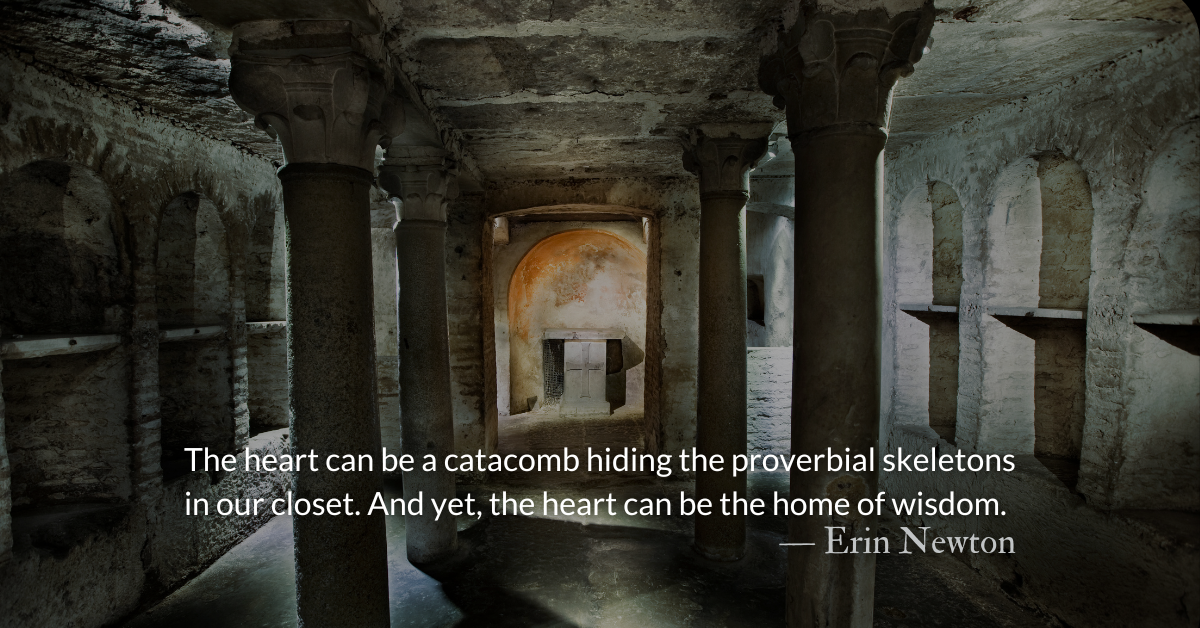Scripture Focus: 1 Kings 7.25-26
25 The Sea stood on twelve bulls, three facing north, three facing west, three facing south and three facing east. The Sea rested on top of them, and their hindquarters were toward the center. 26 It was a handbreadth in thickness, and its rim was like the rim of a cup, like a lily blossom. It held two thousand baths.
Job 7.12
12 Am I the sea, or the monster of the deep,
that you put me under guard?
Matthew 8.27
27 The men were amazed and asked, “What kind of man is this? Even the winds and the waves obey him!”
Reflection: Beside Still Waters
By Erin Newton
I’m quite terrified of the ocean. Maybe I watch too many documentaries or movies about the dangers of the open waters. Too many threats lurk beneath—rip currents, undertows, great white sharks, killer whales, and dare I say, Leviathan.
The sea plays a role in many stories of the Bible, usually as a formidable foe that threatens God’s people: the Red Sea, the raging sea that sends Jonah overboard, and stormy seas threatening the disciples on more than one occasion.
Solomon’s Temple contained features that reflected nature, perhaps the Garden of Eden where God walked among his creation unrestrained. Among the temple furnishings stood a large bronze basin. The enormous size of the bowl was a feat for the Israelite metallurgist. It stood in a fixed location in the Temple—a heavy bronze basin filled with water used for purification and cleansing—and it was called the “Sea.”
The name of the basin is a figurative term for such a large bowl of water, but it strikes at the fearsome image they knew all too well. This Sea, however, is contained, bound, motionless. There are no thrashing waves.
The water served to cleanse the priests (Lev. 8.6) or wash the organs of sacrificed animals (Lev. 8.21). The Sea was no longer a threat, but placed under the watchful eye of God with a renewed purpose. The basin was crowned with gourds and nestled upon the backs of bulls, symbols of life that flow from the cleansing waters.
In the depths of Job’s grief, he calls out to God, asking if he was also constrained like the sea. He recognized the usual threat of the waters but knew that God spoke to the sea and said, “This far you may come and no farther” (Job 38.11).
When a furious storm rolls upon the lake with waves sweeping over the boat, the sea surrenders to the voice of Jesus. Even the winds and the waves obey him.
So why, again, is the Sea in the Temple? Apart from its practical purpose of serving the priests, I think the Sea sits still within the Temple as a reminder—God has this whole world in his hands.
As you enter his presence through prayer, worship, meditation, or reading, look to your left and behold the still waters. The image heralds the supremacy of our God.
Holy, holy, holy is the God of all creation!
Divine Hours Prayer: The Greeting
In you, O Lord, have I taken refuge; let me never be put to shame; deliver me in your righteousness. — Psalm 31.1
– From The Divine Hours: Prayers for Summertime by Phyllis Tickle.
Today’s Readings
1 Kings 7 (Listen 7:47)
Psalms 25 (Listen 2:18)
Read more about Counting Waves
The disciples urged Jesus to awake, their voices strained with fear. “Teacher, do you not care if we drown?”
Read more about Supporting Our Work
Donate today to support ad-free content that brings biblical devotionals to inboxes across the world.






